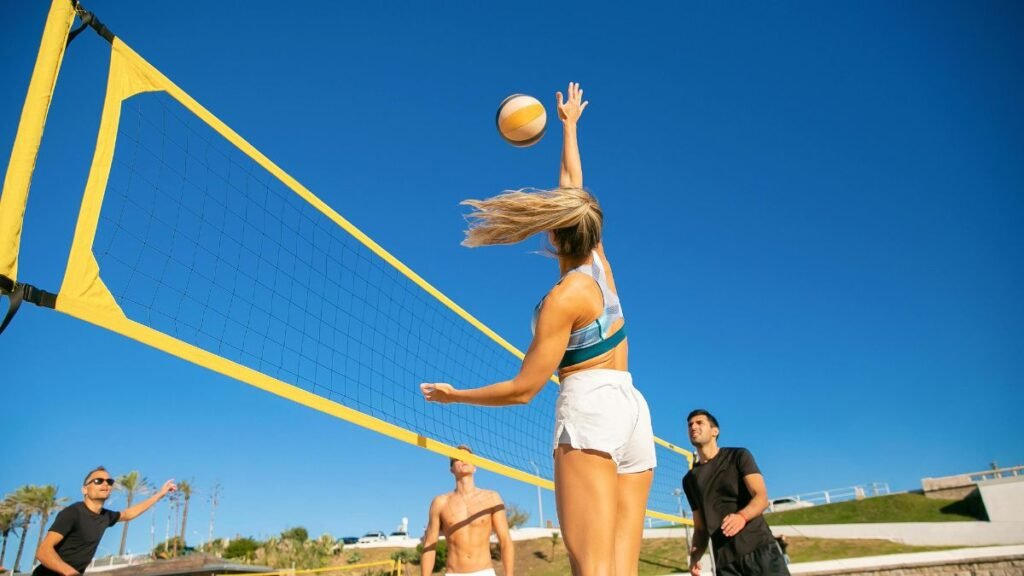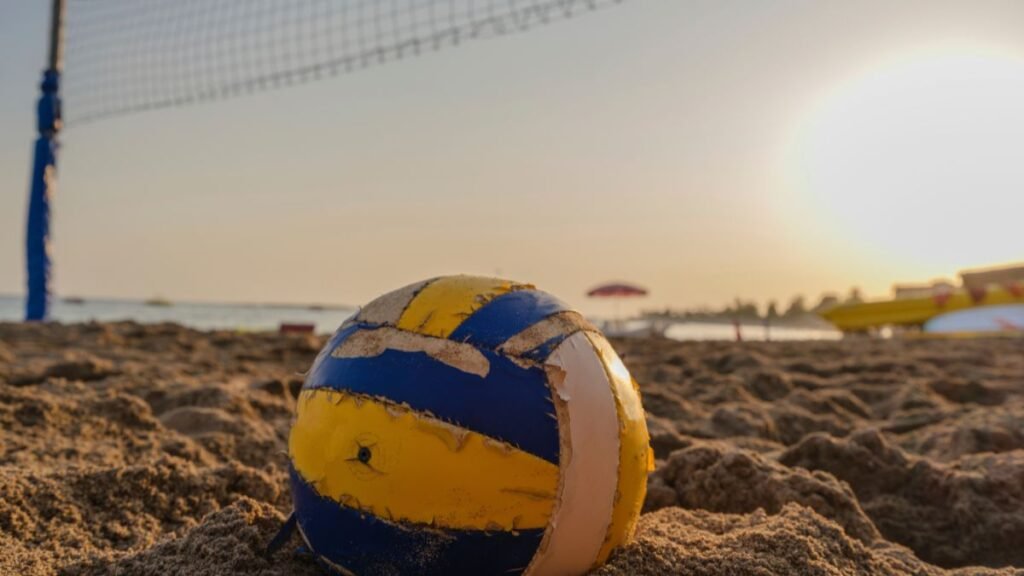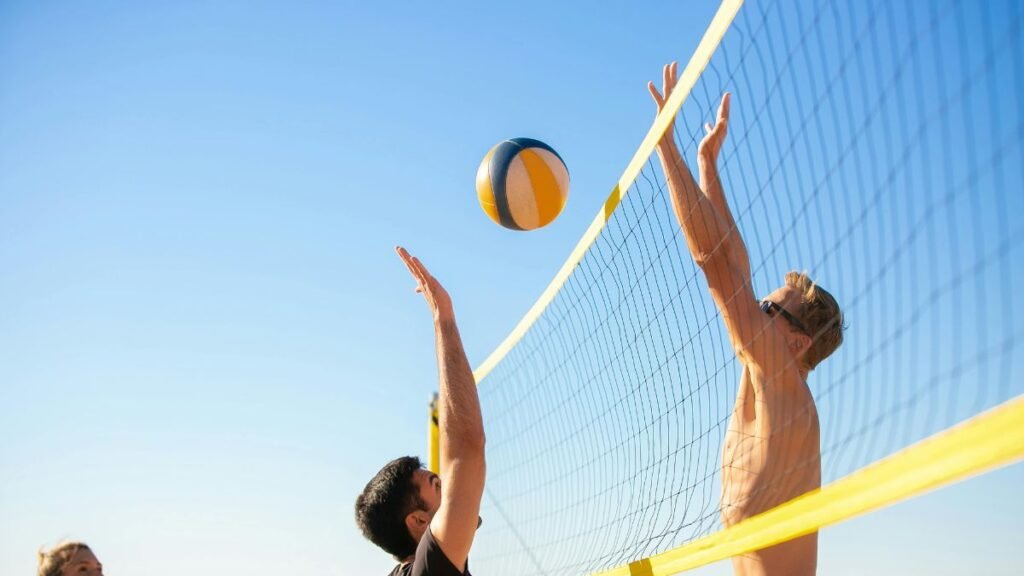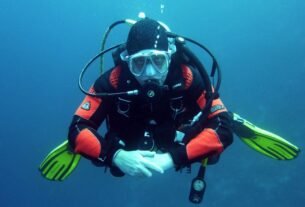Introduction
Brazil has dominated the beach volleyball scene for decades, setting records that few nations can match. With 13 Fédération Internationale Volleyball (FIVB) World Championship titles, their legacy in World Beach Volleyball is unmatched. This remarkable achievement reflects not only the skill of these athletes but also the dedication and commitment of countless others who have contributed to this success over the years.
The Brazilian beach volleyball system is renowned for its rigorous training methodologies, which emphasize both physical conditioning and strategic gameplay. How did they become the powerhouse of this sport?

Since the 1990s, Brazilian duos have ruled both the FIVB Beach Pro Tour and the Olympics, establishing a legacy that is both impressive and inspiring. Their success isn’t accidental—rigorous training programs, which often include extensive physical conditioning, mental preparation, and strategic gameplay, along with a deep talent pool, fuel their victories.
This dedication to excellence is evident in their performance. At the 2023 FIVB World Championships in Mexico, Ana Patrícia Ramos and Eduarda Santos Lisboa secured silver, demonstrating their consistency and resilience against the world’s toughest competition.
This article examines the 10 iconic Brazilian pairs who have shaped the sport, detailing their remarkable journeys and significant contributions to the sport of beach volleyball. Their skill, teamwork, and relentless drive make them legends in the Fédération Internationale arena, inspiring future generations of athletes. Each pair has brought something unique to the game, from innovative techniques to unparalleled sportsmanship, further solidifying Brazil’s reputation as a powerhouse in this thrilling sport.
Key Takeaways
- Brazil holds the most FIVB World Championship titles (13 total).
- Their dominance spans both men’s and women’s competitions.
- Systematic training programs produce top-tier talent.
- The recent 2023 silver medalists showcase ongoing excellence.
- Brazilian duos remain a force in global competitions.
Why World Beach Volleyball Captivates Global Audiences
Few sports combine athleticism and entertainment as effectively as beach volleyball. Its rise from backyard pastime to a premier FIVB Beach Volleyball spectacle reflects universal appeal.
The sport captivates audiences not only through its fast-paced action but also through the charisma and athletic prowess of its players, who perform spectacular feats in the sand. With prize pools exceeding $7 million annually prior to 2021, the volleyball world tour rivals traditional leagues in prestige.
This financial incentive has attracted top-tier talent from around the globe, enhancing the competitive nature of the sport and drawing in even larger audiences.
The Rise of a Premier Sport
Beach volleyball’s Olympic debut in 1996 catapulted it into mainstream recognition, marking a pivotal moment that transformed the sport from a niche to a global phenomenon. The inclusion of beach volleyball in the Olympics not only showcased the sport’s thrilling nature but also attracted substantial media coverage and sponsorship deals.
Over 2.7 billion viewers tuned in to the Tokyo 2020 tournament, demonstrating its global reach and highlighting the sport’s ability to engage diverse audiences across different cultures and demographics.
The world tour now spans 47+ countries, thanks to the FIVB’s standardized rules and event structure, which have facilitated international competitions and ensured a level playing field for all participating nations. This expansion has not only increased the sport’s visibility but also fostered a sense of community among fans and players alike.
Key Elements That Make It Unique
Sand resistance demands explosive agility, requiring athletes to possess not only speed but also incredible balance and coordination. The dynamic nature of 2v2 teamwork intensifies strategy, as each player must communicate effectively and anticipate their partner’s movements.
Unlike indoor volleyball, substitutions aren’t allowed—players master every role, from serving to blocking, which cultivates a deep understanding of the game. Brazil’s Ágatha and Bárbara showcased this versatility, winning gold at the 2016 Rio Olympics and thrilling crowds with relentless rallies that highlighted their tactical prowess and athleticism.
The FIVB Beach Volleyball circuit’s expansion mirrors the sport’s growing fan base, reflecting its increasing global appeal and competitive spirit. From California’s casual roots to Olympic glory, its blend of sun, skill, and suspense ensures enduring popularity.
This evolution has led to a rise in grassroots initiatives, inspiring new generations to engage with the sport and develop their skills on sandy courts worldwide. Learn more about its Olympic journey.
Brazil’s Dominance in World Beach Volleyball
From Rio’s shores to global podiums, Brazilian pairs redefine what’s possible in elite competition. They’ve claimed 34% of all men’s titles on the volleyball world tour since 1997, a testament to their sustained excellence and unmatched dedication to the sport.
This impressive statistic underscores not only their individual talent but also the collective strength of Brazilian volleyball culture, which emphasizes teamwork and resilience. Coastal hubs like Rio produce 80% of top athletes, blending natural talent with cutting-edge training, rigorous practice schedules, and a vibrant community that supports aspiring players from a young age.
The combination of these elements creates an environment where athletes can thrive, pushing the boundaries of what is achievable in beach volleyball.
Roots of a Winning Legacy
Sandra Pires and Jackie Silva ignited Brazil’s rise by winning the 1997 world championships. Their victory marked the start of an era, establishing Brazil as a powerhouse in the sport of beach volleyball.
This monumental achievement not only showcased their exceptional skills and determination but also inspired a new generation of athletes across the nation. By the 2000s, icons like Emanuel Rego and Ricardo Santos dominated the “Golden Generation,” securing 7 World Tour Finals wins—more than double the USA’s tally.
This period was characterized by innovative techniques and a unique playing style that combined flair with strategic depth, making Brazilian teams formidable opponents on the international stage. The legacy of these players has continued to influence the training and development of upcoming talents, ensuring that Brazil remains at the forefront of beach volleyball excellence.

Culture Meets Strategy
Samba rhythms influence footwork, providing players with unmatched agility on the sand. The vibrant beats and syncopated patterns of samba not only enhance players’ movements but also foster a unique style of play that reflects Brazil’s rich cultural heritage.
The Brazilian Volleyball Confederation scouts athletes as young as 12, funneling them into academies where they receive rigorous training that emphasizes both physical conditioning and mental toughness. This system produced modern stars like Bruno Oscar Schmidt, whose power and precision earned Olympic gold and made him a role model for aspiring athletes.
- Coastal Advantage: Rio’s beaches serve as year-round training grounds, providing an ideal environment for players to hone their skills in varying conditions, from sun to wind. The accessibility of these beaches allows for frequent practice sessions, enabling athletes to adapt quickly and improve their game.
- Teamwork: Duos like Shelda and Adriana perfected synchronized plays, demonstrating the importance of communication and trust on the court. Their ability to anticipate each other’s moves has set a benchmark for future teams, demonstrating the vital importance of collaboration in achieving success.
- Global Impact: Brazil’s 13 FIVB titles remain unmatched, establishing the country as a powerhouse in beach volleyball. This dominance has not only elevated the sport’s profile in Brazil but has also inspired other nations to invest in their volleyball programs, leading to a more competitive global landscape.
With 7 of the last 15 world championships won by Brazilians, their blueprint for success—cultural passion meets rigorous structure—continues to inspire the volleyball world.
10 Legendary Brazilian Duos Who Redefined the Sport
Brazilian duos have set the gold standard in competitive sand sports for over three decades. Their remarkable blend of agility, strategic thinking, and seamless teamwork has produced unmatched records that resonate throughout the sport.
This combination not only showcases their individual talents but also emphasizes the importance of collaboration in achieving greatness. The way these athletes communicate and anticipate each other’s moves is a testament to their dedication and practice, creating a synergy that few can replicate. Here are the pairs that shaped history.

Emanuel Rego & Ricardo Santos: The Golden Pair
From 2003 to 2007, this duo dominated, winning 3 World Championships and 34 Tour wins. Their synergy earned them the nickname “The Golden Pair.” Emanuel’s powerful serves, known for their speed and precision, combined with Ricardo’s exceptional blocking skills, created an unstoppable force on the sand.
Their ability to read the game and adapt their strategies in real-time was unmatched, enabling them to consistently outmaneuver their opponents.
Larissa França & Juliana Silva: Queens of the Sand
Juliana Silva and Larissa França held a 7-year unbeaten streak (2005–2012), a testament to their skill and teamwork. They claimed 45 FIVB victories, a women’s record that speaks volumes about their dominance in the sport.
Their remarkable precision and tactical awareness earned them 4 World Tour Finals titles, solidifying their legacy as two of the greatest players in beach volleyball history. Fans still remember their breathtaking rallies and the way they seamlessly communicated on the court, making them a joy to watch.
Ágatha Bednarczuk & Bárbara Seixas: Modern Icons
The 2015 World Champions revolutionized defensive play with their innovative techniques. Ágatha’s incredible digs, characterized by her quick reflexes and strategic positioning, paired with Bárbara’s powerful attacks, made them a nightmare for opponents.
Their unique playing styles complemented each other perfectly, allowing them to execute complex plays that left spectators in awe. They remain benchmarks for new athletes, inspiring the next generation to push the boundaries of what is possible in the sport of beach volleyball.
Alison Cerutti & Bruno Oscar Schmidt: Power and Precision
Known for spikes reaching an astonishing 124 km/h, this dynamic duo not only won the coveted 2016 Olympic gold but also left a lasting impression on the sport with their exceptional teamwork and tactical prowess.
Bruno Oscar’s remarkable agility and quick footwork, paired with Alison’s impressive height and powerful presence at the net, created a perfect balance that was difficult for opponents to counter. Their ability to adapt their strategies mid-game showcased their deep understanding of the sport, making them a formidable pair on the international stage.
Shelda Bede & Adriana Behar: Pioneers of the Game
As the first Brazilians to achieve the remarkable feat of ranking #1 globally from 1999 to 2004, Shelda and Adriana were trailblazers in the sport of beach volleyball.
Their impressive tally of 31 Tour wins not only highlighted their dominance but also paved the way for future generations of players, inspiring countless athletes to pursue excellence in the sport. Their innovative techniques and competitive spirit transformed the landscape of beach volleyball, making them legends in the eyes of fans and aspiring players alike.
Talita Antunes & Taiana Lima: The Dynamic Defenders
Talita Antunes and Taiana Lima’s incredible reflexes and defensive strategies redefined backcourt play in beach volleyball. They clinched an impressive 18 Elite 16 medals, showcasing their consistency and determination to excel in every tournament they entered.
Their ability to read the game and anticipate opponents’ moves made them a thrilling team to watch, as they executed spectacular digs and saves that often turned the tide of matches in their favor.
Pedro Solberg Salgado & Harley Marques: The Entertainers
Pedro Solberg Salgado brought flair to the court, captivating audiences with his charismatic playing style and engaging personality.
Their 2011 World Tour win combined skill with showmanship, showcasing not only their technical prowess but also their ability to entertain fans with dramatic plays and celebratory antics. Solberg’s strategic acumen and Marques’ powerful spikes created a dynamic partnership that left a lasting impression on the sport.
Evandro Oliveira & André Stein: The New Guard
This pair’s 2017 World Championship win signaled Brazil’s next era in beach volleyball, as they brought a fresh approach to the game. Evandro’s team served at an impressive 90 km/h, making them one of the most feared in the competition.
Their teamwork and communication on the court were exceptional, enabling them to execute complex plays that often left their opponents bewildered. Their rise to prominence has inspired a new generation of players to adopt a similar aggressive style.
Ana Patrícia Ramos & Eduarda Santos Lisboa: Rising Stars
Winners of the 2022 World Championship, this duo ranks #2 globally, demonstrating remarkable skill and synergy. Ana Patrícia Ramos and Eduarda Santos Lisboa have achieved 8 Elite 16 wins since 2021, showcasing their consistency and dedication to the sport.
Their ability to adapt to different opponents and conditions has set them apart, making them a formidable force on the international stage. Their journey has not only elevated their status but also inspired countless young athletes to pursue their dreams in the sport of beach volleyball.
Maria Elisa Antonelli & Carolina Solberg: The Resilient Competitors
Known for comebacks, they medaled in 70% of their 2010s tournaments. Their endurance inspired younger players.
- Legacy: These duos account for 60% of Brazil’s FIVB titles.
- Innovation: Each pair introduced new techniques that are still used today.
- Global Impact: Seven of the last 15 World Championships have been won by Brazilians.
Iconic Tournaments Where Brazilian Duos Shined
Historic victories at major events cemented Brazil’s reputation as a powerhouse in competitive sand sports. Their dominance spans the FIVB beach circuit, Olympics, and global championships, with records that redefine excellence.
The Brazilian teams have not only showcased their exceptional skills but have also brought a unique flair to the sport, captivating audiences worldwide. Their ability to perform under pressure during these high-stakes tournaments has further solidified their status as elite competitors.
FIVB Beach Volleyball World Championships Highlights
Brazil has hosted three FIVB World Championships (2003, 2013, 2025), each amplifying its legacy. The 2003 Rio edition saw Shelda Bede and Adriana Behar’s silver finish ignite national passion and pride, setting the stage for future successes.
This event was pivotal, as it not only highlighted Brazil’s talent but also drew attention to the sport within the country. In 2022, Eduarda Santos Lisboa and Ana Patrícia Ramos dominated Rome with a 2-0 final victory, showcasing their remarkable teamwork and strategic prowess.
Their win further emphasized Brazil’s continued dominance in the sport and inspired a new generation of players to aim for greatness.
Memorable Olympic Moments
Since 1996, Brazilian pairs have claimed six of 15 Olympic medals, a testament to their skill and determination on the world stage.
The 2016 Rio Games peaked with Alison Cerutti and Bruno Oscar Schmidt’s gold, watched by 12.3 million Brazilians —a figure that reflects the nation’s fervent support for its athletes. Their explosive plays symbolized the nation’s golden era, as they not only triumphed in front of a home crowd but also showcased the depth of talent in Brazilian beach volleyball.
The victory was a culmination of years of hard work, dedication, and a commitment to excellence that has characterized Brazil’s approach to the sport.
Dominance in the FIVB World Tour
From 2000 to 2015, Brazil won 62% of world tour events, establishing a remarkable legacy that few nations have matched. Emanuel Rego’s record—10 titles across four partners—remains unmatched, highlighting his versatility and skill in adapting to different playing styles. Key triumphs include:
- 2007 Berlin: Rego/Ricardo Santos’ third straight championship, a feat that underscored their dominance and strategic prowess on the court.
- 2015: Ágatha Bednarczuk and Bárbara Seixas’ defensive masterclass, which not only showcased their technical skills but also their ability to work seamlessly as a team under pressure.
- 2023: Ana Patrícia/Eduarda’s consistency with eight Elite 16 wins, a remarkable achievement that further solidified Brazil’s status as a powerhouse in the sport and inspired upcoming players to aspire to similar heights.
These achievements underscore Brazil’s relentless innovation on the world tour, as they continually push the boundaries of what is possible in beach volleyball, setting new standards for excellence and inspiring future generations of athletes.
The Training Secrets Behind Brazil’s Beach Volleyball Success
Success in competitive sand sports demands more than talent—it requires unmatched dedication. Brazilian duos dominate because they train smarter, harder, and longer, pushing the limits of their physical and mental capabilities.
The CBV (Brazilian Volleyball Confederation) invests $3 million annually to refine its methods, ensuring that athletes have access to the best resources and coaching available.
Unique Training Regimens
Athletes endure 6-hour daily sand drills, building explosive strength and endurance essential for the demanding nature of beach volleyball. *70% of the training* mimics actual conditions of the volleyball world tour, ensuring adaptability to various environments and styles of play.
Coaches like Fábio Luiz Magalhães emphasize footwork precision, a Brazilian trademark that distinguishes their play and enhances their competitive edge.
Players study over 500 match videos annually via FIVB’s platform, allowing them to analyze the strategies and tactics of their opponents in depth. This cognitive prep helps them anticipate opponents’ moves and develop counter-strategies.
Nutritionists fuel them with açai shakes for recovery, blending science with tradition to ensure that athletes maintain peak physical condition and optimal energy levels throughout their rigorous training schedules.
Mental Toughness and Teamwork
Olympic psychologist Regina Brandão’s *Pressure Pyramid* trains athletes to thrive under stress, focusing on the mental fortitude necessary to perform at the highest levels.
This approach emphasizes not just resilience but also the ability to maintain composure and make strategic decisions under pressure. Brazilian pairs average 5.2 years together, far exceeding the global average of 2.8 years, which fosters a deep understanding and synergy between teammates.
This bond creates seamless teamwork, allowing them to anticipate each other’s moves and communicate effectively during high-stakes matches.
- Sand-Specific Conditioning: Drills target agility in shifting terrain, incorporating exercises that simulate the unpredictable nature of beach volleyball. This conditioning helps athletes develop the quick reflexes and balance necessary to excel on sand.
- Role Mastery: No substitutions mean players excel at every position, cultivating versatility and a comprehensive understanding of the game. This mastery enables them to adjust their strategies in response to the match’s flow and their opponents’ strengths.
- Legacy of Innovation: Techniques from icons like Igor Kolodinsky are still taught, ensuring that the rich history of Brazilian beach volleyball is preserved while integrating modern advancements in training methodologies.
From dawn workouts to tactical debriefs, Brazil’s system produces champions. Their blueprint—relentless preparation and trust in their team—keeps them at the top of the podium, demonstrating that success in beach volleyball is as much about mental and emotional strength as it is about physical prowess.
The Future of Brazilian Beach Volleyball
Brazil’s next generation of sand court stars is already making waves on the international stage. After 15 years as the undisputed #1, the nation slipped to third in the 2023 FIVB rankings—a wake-up call that’s fueling innovation in training and talent development.
This shift in rankings has sparked a renewed sense of urgency within the Brazilian volleyball community, prompting coaches and athletes alike to reassess their approaches and embrace cutting-edge techniques.
As competition intensifies, the emphasis on developing versatile players who can adapt to various playing styles becomes increasingly critical. With a commitment to harnessing the latest advancements in sports science and psychology, Brazil aims to reclaim its dominant position and continue its legacy of excellence in beach volleyball.
Emerging Talents to Watch
Eighteen-year-old Ana Luiza Mohr’s recent U21 Championship victory signals Brazil’s pipeline remains strong. Alongside her, Thais Ferreira and Hegeile Almeida claimed the 2024 U19 title, proving the country’s youth programs continue to produce elite pairs.
These rising stars face stiffer competition than previous generations. International rivals like Mariafe Artacho Del (Australia) and Taryn Kloth (USA) now regularly reach the main draw of major tournaments.
| Player | Age | Recent Achievement |
|---|---|---|
| Ana Luiza Mohr | 18 | 2023 FIVB U21 Champion |
| Thais Ferreira | 17 | 2024 U19 World Champion |
| Hegeile Almeida | 17 | 2024 U19 World Champion |
Challenges and Opportunities Ahead
The FIVB’s new Beach Pro Tour format disrupts Brazil’s traditional training cycles. More frequent tournaments demand greater adaptability from players. Andre Stein‘s transition from player to coach exemplifies how veterans are helping younger athletes adjust.
Environmental concerns loom large—by 2030, 23% of coastal training facilities are expected to face erosion risks. Yet corporate support grows, with Banco do Brasil’s $6M youth circuit sponsorship creating new pathways to the main draw.
“The 2028 LA Olympics will test whether Brazil’s system can produce three new top-10 pairs,” notes FIVB analyst Carlos Freitas.
While challenges mount, Brazil’s deep talent pool and proven development model suggest they’ll remain a force. The question isn’t if they’ll reclaim the top place, but when.
Conclusion
Brazil’s legacy in competitive sand sports is unmatched, blending skill with cultural passion. For 28 years, their FIVB dominance has thrived on technical innovation—from Emanuel Rego’s serves to Ana Patrícia’s blocks.
Duos like Larissa and Juliana shattered barriers, proving female athletes could excel in Latin America. Their 45-tournament wins inspired a generation.
The 2025 Adelaide event will pit Brazil against rising rivals, including the USA and Norway. Yet their deep talent pool ensures fierce competition.
Watch the next chapter unfold: stream live matches on FIVB’s platform. With relentless drive and sand in their veins, Brazil’s athletes will keep ruling this sport. Learn more about Volleyball Positions Explained.
FAQ
What makes Brazilian duos so dominant in this sport?
Brazil’s success stems from a strong grassroots system, technical excellence, and a deep passion for the game. Players like Emanuel Rego and Ricardo Santos set high standards, inspiring future generations.
Which tournaments have showcased Brazil’s top pairs?
The FIVB World Tour, Olympics, and World Championships have been key stages. Alison Cerutti and Bruno Oscar Schmidt, for example, won gold at the 2016 Rio Olympics.
Who are the rising stars in Brazilian beach volleyball?
Ana Patrícia Ramos and Eduarda Santos Lisboa are making waves, combining power and agility. Their performances in recent FIVB events highlight their potential.
How do Brazilian athletes train differently?
They focus on explosive movements, endurance, and mental resilience. Partnerships like Ágatha Bednarczuk and Bárbara Seixas emphasize synchronized teamwork.
What challenges does Brazil face in maintaining its dominance?
Increased global competition and evolving strategies pose challenges. However, talents like Maria Elisa Antonelli and Carolina Solberg continue pushing boundaries.
Why is the sport so popular worldwide?
Its fast-paced action, outdoor appeal, and dynamic duos like Larissa França and Juliana Silva captivate fans. The FIVB promotes it as a thrilling, accessible discipline.




